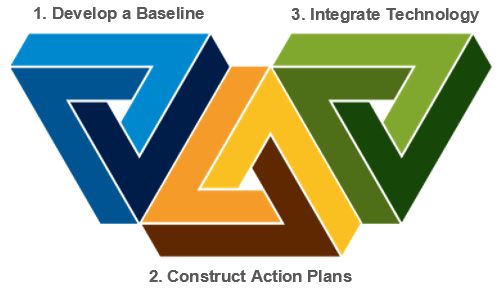
What events are occurring in your city this week? What effects will these events have on your workplace? Business interruption for any reason can have a negative, lasting impact. To counter this possibility, successful organizations develop comprehensive situational awareness plans to keep the continuity of their operations and protect employees, tenants and visitors.
Business vulnerabilities and threats should be approached proactively. It is essential to include situational awareness as an element of your overall business continuity plan, utilizing actionable intelligence and predictive risk. Business leaders need to know what is happening now, what has happened in the past, and what could happen in the future.
1. Develop a Baseline – Proper assessment of your business and security program is vital. You must consider how weather events, travel restrictions, protests and even terrorist acts might impact your operations. An initial evaluation will allow you to act quickly when a situation arises.
2. Construct Action Plans – Work with your security team to implement preparedness and response plans for both large and dangerous, and small and inconvenient events. These plans should take into consideration employee roles and responsibilities.
3. Integrate Technology – While it is hard to track every threat on the horizon, we can use information from past events to help predict the future. Your security team can suggest technology solutions that will enhance your situational awareness and help drive decisions based on emerging risks.
Situational awareness is a mindset, and should be exercised by organizations and employees alike. It can be used daily to not only recognize large business risks, like terrorist threats, but also in identifying suspicious behavior and other dangerous situations. Vigilance is important to protecting your overall brand.
About the Author
Rich Cordivari is Vice President, Operations Support for Allied Universal.









